From attack UAVs to an unmanned fighter. The Turkish company Baykar intends to build in Ukraine not just a factory for the production of Bayraktar TB2 attack drones, as previously stated by the Ambassador of Ukraine to Turkey, Vasyl Bodnar. In an exclusive interview with “Come Back Alive”, Baykar General Director Haluk Bayraktar said that in the future the company also plans to create Bayraktar Akıncı and Bayraktar Kizilelma — a new unmanned fighter jet — in Ukraine. For this purpose, as of August 2022, the partners have already started the construction of a factory, a research center and a center of advanced production on the territory of Ukraine.
What can be expected from further cooperation? But what is the place of our country in the work of Bayraktar TB2 and Bayraktar Akıncı strike drones? Baykar General Director Haluk Bayraktar told about this and other things in an interview with Taras Chmut, director of the Come Back Alive Foundation.
— First of all, I want to thank you for finding the time to meet, to talk about the future and already implemented projects. And I also want to thank you for your long-term support (of Ukraine) in this war.
Moving on to the questions: your company is almost 40 years old. You started out as a car parts manufacturer, but then moved on to drones. What preceded such a transition? Why did you switch specialization to attack drones?
– Also, thank you for visiting us. We, the Baykar company, are delighted with what you are doing in Ukraine, with your successful work. As for the Baykar company, it was created as a company for the production of automobile spare parts. It was a small engineering company founded by Ozdemir Bayraktar, my father. He was a mechanical engineer, but at the same time he was an amateur pilot. My father flew single-engine airplanes, and my family and I all built and piloted model airplanes together as children.
Father was an enthusiastic engineer, and he was very interested in flights, aerospace engineering, and new aircraft projects. When the second generation, me and my brother Selchuk, were old enough to work for Baykar, Selchuk was studying in the United States at the time, and I was also in the United States. And we all together wanted to do something new in Turkey. And in Turkey, if you look at the aerospace industry, that time was the period when the Republic of Turkey was founded, there were some efforts to build our own aircraft, but then everything stopped. So we as a family thought we should change the game, restart it and do something different from what the world is already doing, but do innovative things in the airspace that will get our country back into the competitive game.
Selchuk has a very good technical education, he has diplomas from the best universities in the USA. My father wanted us not to live in the US and work there, but to return and work in our own country. So we all started working together and developing unmanned aerial vehicles, completely with our own funds.
We spent seven years in this field. They started with small hand-launched drones. When we started Baykar, we were very small – we were about 5-6 people. It was 2002. Finally, after years of research, we succeeded in developing the Bayraktar Mini UAV. We managed to deliver these small UAV systems to the Turkish military in 2007. It was a long period of research where we focused on flight control systems and control systems from the software and electronics side. We focused a lot and worked a lot on it. For Baykar, UAVs represent a challenge for Turkey and similar countries. It’s about the fact that we can return to this race when everyone is already at the end, at the final point, and we can compete with the world.
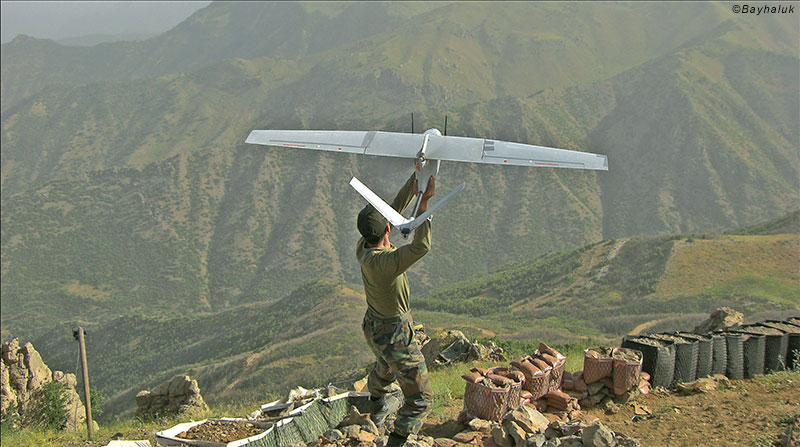
Also, if you look at these technologies, you will see many limitations. You can’t just buy them. They are very limited by the rules. These technologies are not for sale. Even with your money you cannot get it. So we wanted Turkey to be self-sufficient, independent, and we wanted to give our country the most advanced technology in this regard. And this applies not only to Turkey, but also to the states with which we have fraternal and good relations. Otherwise, even if you have the funds, you still won’t have access to UAV technology. This was our challenge and main motivation.
20 years ago, we knew that this would be a new spark in Turkey. And this is visible in our speeches and even in our scientific publications. To demonstrate a very high-end technology that everyone is proud of and believes in, believes that they can also do something new for their country is a kind of spark for the country. That’s why we took it on, why we started working on it, and then completely shifted our focus from our automotive business to UAV technology.
— Your company is one of the first in Turkey to enter global markets. How many countries do you work with and sell your products to?
– In fact, as soon as we developed our products, as soon as we delivered them to the end users, the product became better because of the feedback. End users are using drones and they are becoming more reliable. Users suggest what still needs to be developed. In this way, we, Baykar, all continued to work in the field, with the military, side by side. We did not sit in offices or in a factory. We just worked in the field with them for years. Turkey has faced a very brutal terrorism. During the last 40 years, our soldiers died every day. This was a very big problem for us. So we worked side by side with our soldiers: our products turned out to be very good, and we improved them thanks to feedback. And as soon as the product proved itself in operation, then foreign interest began to appear.
Our first export customer… We started with a mini-UAV and went to the scale of the Bayraktar TB2, and then we went to a more strategic level, and now we’re building an unmanned fighter. So, as soon as you prove the effectiveness of your products to the client, foreign interest will appear. Because the world is in great need of such platforms. Platforms like these give you a force multiplier effect that can run for hours, are durable, don’t put your soldiers at risk, and you can do a lot of different missions with them. So Qatar became our first export client. We exported our mini UAV, it’s not even Bayraktar TB2. In 2012, we exported our mini UAV to Qatar. And then, already in 2015, Bayraktar TB2 was ready for operation. And after that, our first customer to buy Bayraktar TB2 was also Qatar,
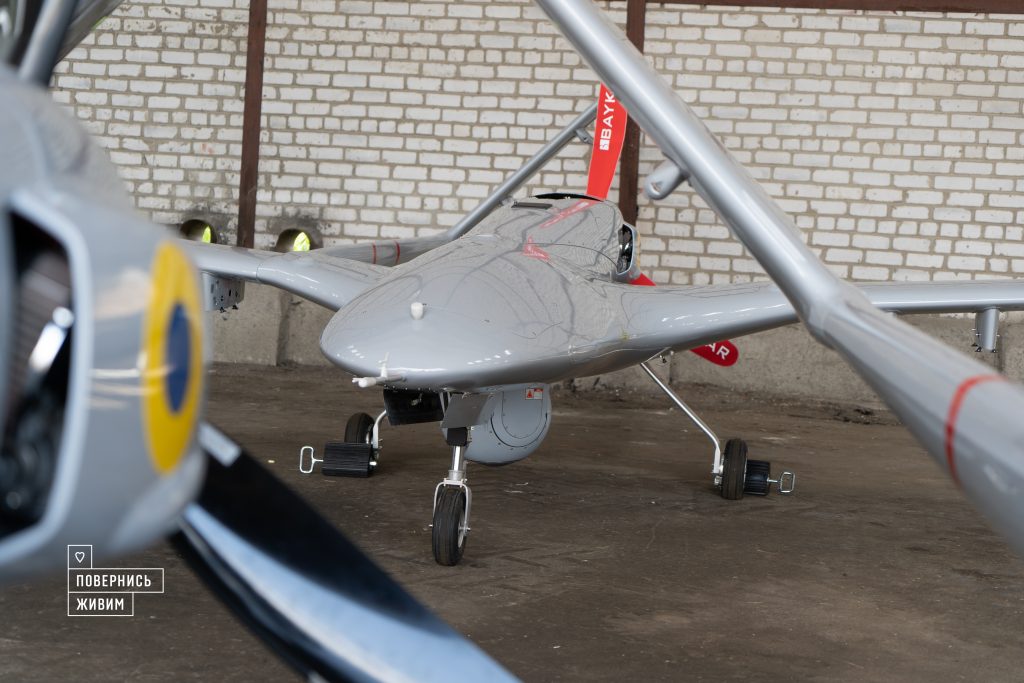
So, as soon as these products proved themselves, they found their place in the export market. And now, you know, our first clients were Qatar and Ukraine. By the way, Ukraine is particularly interesting here. No other country, except Turkey, has ever agreed to cooperate with Ukraine in the field of attack UAVs. Only Turkey agreed to work on this technology. In addition, Bayraktar TB2 became one of the main elements connecting Ukraine and Turkey. It makes our cooperation in aerospace and defense closer, more complementary. Many more projects are accompanied by actions. So you need one success story for others to follow. Bayraktar TB2 was such a story in the relations between Turkey and Ukraine. We created many different projects, many bilateral international agreements between Ukraine and Turkey were signed,
— How did the idea to create Bayraktar as it is come about, and how long did it take from the idea to the first flight and direct implementation?
— Bayraktar means “the man who carries the flag.” Our last name means it. So we apply the Bayraktar name to all the products we make. Given that they carry the flag, they have a mission and vision for the country as well as friendly countries. And as I said, as soon as we started, we focused on the most valuable items in the UAV industry, the flight control systems. This is both software and electronics. We focused with our team on these core critical elements, because it’s not just the platform, but the very small details of those platforms that won’t sell you, whether it’s an armed or unarmed UAV.
There are limitations. So if you need to build a very successful UAV—which is a really unique industry that’s just started to develop, by the way—it’s not like the auto industry, where it’s all set up, where you can buy subsystems and parts and put them together and make something work . In this industry, you really need to design subsystems individually, optimize them. The UAV must be reliable. The end user has to feel that it is reliable and it has to be a statistically very reliable platform for it to be effective in this field. Therefore, every Bayraktar TB2 subsystem—all major critical subsystems—is designed and built in-house.
— How many planes does the factory produce on average now?
— When we started, we made only one Bayraktar TB2 per month. Such was the potential of our company.
BUT EVERY YEAR, WITH NEW INVESTMENTS, RIGHT NOW WE HAVE REACHED THE POINT WHERE WE CAN PRODUCE 20 UNITS OF BAYRAKTAR TB2 EVERY MONTH.
This means that every day and a half you get a new Bayraktar TB2 from this factory, which is a good pace. That’s the pace we’ve reached this year. And next year there will be even more. So we want to build them in much larger quantities, so we’re making the necessary investments in that regard now.
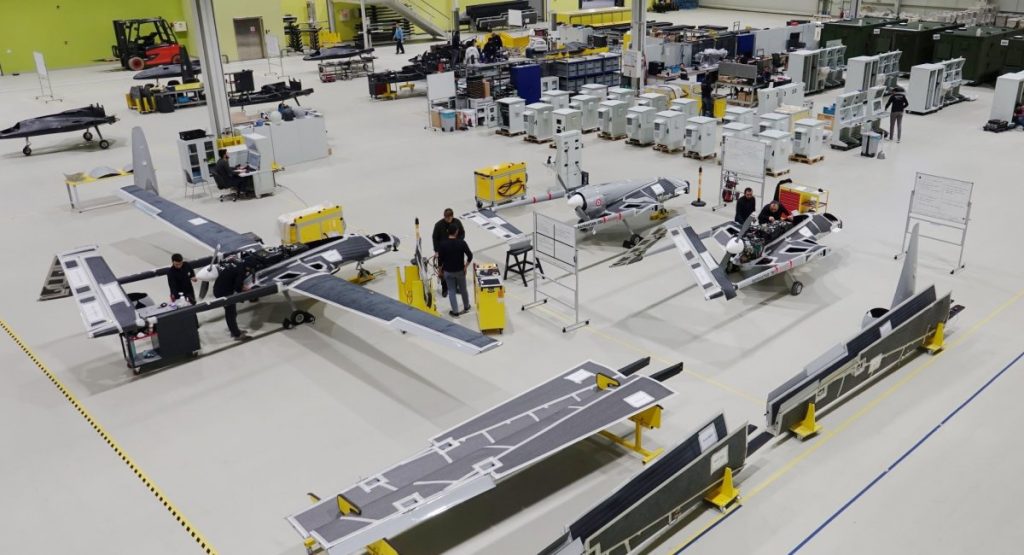
— About 2.5 thousand people work at your company. How many of them are directly engaged in development as designers?
— Now Baykar is a company where young and dynamic engineers and technicians work.
OUR AVERAGE AGE IS ABOUT 30 YEARS. EVERY YEAR, WE ACCEPT MORE THAN 1,200 UNIVERSITY STUDENTS FOR INTERNSHIPS.
And now Baykar has a total of 2,500 employees. Half of this number are engineers and pilots. The second half is technique. So we can say that more than 1,000 people are involved in the development of systems.
— The modern model of the complex showed itself quite well, first of all, in the war in Ukraine. Do you receive feedback and does the complex change as a result of its use in Ukraine?
— Bayraktar TB2 has been in use for seven years. It has been used in many different environments.
HOT CLIMATE, COLD CLIMATE, OPERATIONS AGAINST TERRORIST ACTIVITIES. HE WAS INVOLVED IN AZERBAIJAN, IN SOME AFRICAN COUNTRIES.
So we saw a lot of different environments, different operational areas. And in that respect, there’s a similarity in every technology — like in cell phones, where you have software updates, hardware updates. It is constantly updated depending on the dynamics of the environment.
We’ve released hundreds of software updates, hundreds of hardware updates. To keep a fleet alive and reliable, it needs to be constantly updated and developed. And it’s still going on. Of course, now the war in Ukraine is very difficult. It’s a very large scale, it has its own dynamics, and a lot of things flow from that — and of course there’s a feedback loop. We, Baykar, trained the Ukrainian military before the war, so they are in full control of the systems, and we, Baykar, provide them with technical support. So there are many different updates. This is to maintain system performance and operational capability.
— How, in general, will the Russian-Ukrainian war affect the development of world strike drones in the future?
— Bayraktar TB2, and indeed before it, these types of unmanned systems were not used much in conventional types of combat engagements. Starting with the operation in Syria and then the operation in Nagorno-Karabash in Azerbaijan, this type of system has proven valuable not only in asymmetric warfare, but also in conventional types of warfare. Because it gives you 24-hour situational awareness, without risking human lives, to deliver precision strikes. This helps other military resources to be more effective. So in this regard, unmanned systems, especially during the war in Ukraine, proved that every country should have such capabilities at its disposal. This gives you a clear picture of the battlefield and very different possibilities that can multiply the effectiveness of the means. The war in Ukraine proved that such means are necessary on the ground, and we can affirm this.
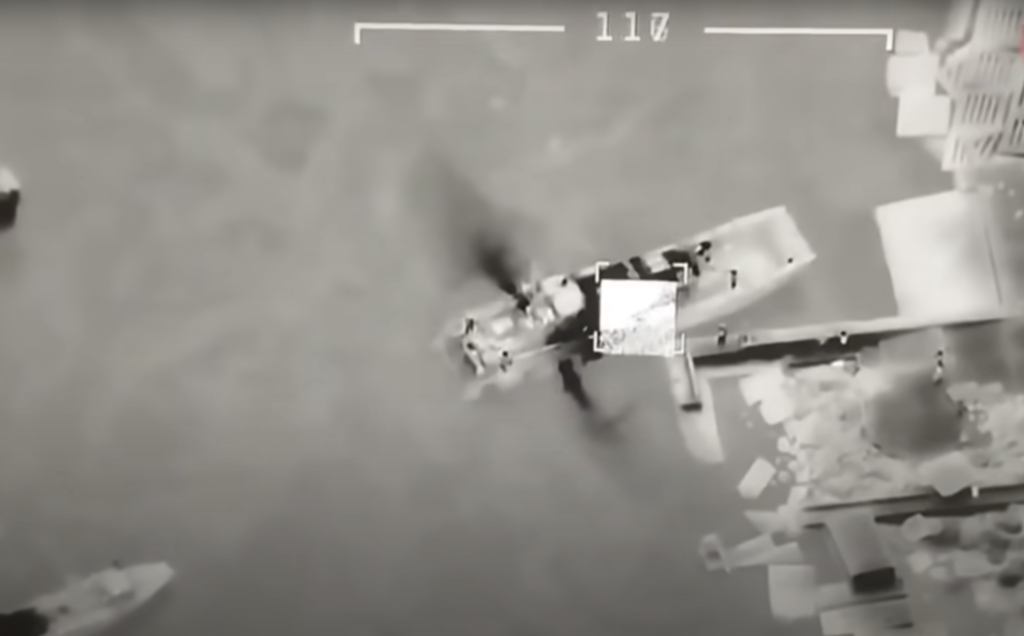

— Besides TB2, what else could your company offer to Ukraine? Are there any new developments to talk about?
— Bayraktar TB2 and Bayraktar Akıncı are in serial production. We handed over Bayraktar Akıncı – more than 9 units – to the Turkish military. We have signed export contracts for it with various countries. At Bayraktar TB2, we have export contracts with 22 different countries. [Taras Chmut says “22” in the video, pointing to the TB2 model on the table, then “4” and points to Akıncı. Haluk Bayraktar confirms this figure. — Ed. ] We are currently working on a drone fighter project, which is very new and we are fully funding it. This, in fact, will be a new level in the arena of unmanned systems.
In the Akıncı and unmanned fighter project, we are cooperating very closely with Ukraine. Ukraine is one of the few countries that have engine technology, so you have very good and efficient engines, and our close coordination and cooperation also helps Ukrainian engines to take their place in the UAV market.
AKINCI MADE ITS FIRST FLIGHT WITH A UKRAINIAN ENGINE, AND NOW WE ARE INTEGRATING MORE, INCLUDING VARIOUS UKRAINIAN ENGINES.
The unmanned fighters will also be equipped with two types of Ukrainian engines. Those are our main platforms that we work on, but of course we have some products on smaller platforms. We have a mini UAV. We have a platform with a vertical take-off. We also have other types of products in our portfolio and we want them to work in coordination with these core platforms. So we also build smaller scale platforms at Baykar, working alongside these major platforms.
— Which platforms are most in demand now? TB2 level? Akıncı level? Are there any others?
— Currently, since Bayraktar TB2 and Bayraktar Akıncı are mass-produced, we have demand for both. Therefore, our company has a significant number of orders.
OUR COMPANY’S PRODUCTION IS CURRENTLY BOOKED APPROXIMATELY THREE YEARS AHEAD.
As these systems prove their effectiveness in practice, more and more countries are interested in them and, in particular, in the Bayraktar TB2 system, where the ratio of performance to cost is higher. It’s a system where you don’t pay as much as you should pay for a fighter jet. Instead, you can get an entire system; you can create a fleet with which you can control the borders of your country. You can have 24/7 monitoring of the situation in your country for much less than you would pay for a fighter jet. And even if you have fighter jets, these UAVs help them be more effective. So in that sense, it’s an attractive product, and it’s also reliable, it can fly in obstacle conditions, it can fly in all weather conditions, it has a high-quality network system on the ground, it’s very flexible.
— Last year, Ukraine and Turkey signed a memorandum on the deployment of Bayraktar joint production and the creation of a plant in Ukraine. Given the current security situation, are negotiations continuing? Have the plans for the construction of the plant changed?
— We see Ukraine as our strategic partner. We have long-term plans for projects with Ukraine, and we had many projects actually. Baykar has started construction of a factory in Ukraine, a research center and an advanced manufacturing center where we want to manufacture all systems. Not just the fuselage, but the electronics, the software, everything we do here. We had such a vision. In this regard, our investment plans are progressing right now. We are at the project planning stage for these deals. We also want to start real investments soon. We already have a structure — a company in Ukraine. We already have a technical engineering team working to support Ukraine. But now we want to make Ukraine a production base. This is one of our ideals.
OUR WISH IS THAT ONE DAY AT THE FACTORY IN UKRAINE WE WILL BE ABLE TO CREATE BAYRAKTAR TB2, BAYRAKTAR AKINCI, AS WELL AS THE NEW BAYRAKTAR KIZILELMA – AN UNMANNED FIGHTER (DURING THE VIDEO INTERVIEW HALUK BAYRAKTAR CALLS THIS FIGHTER BAYRAKTAR GOLDEN APPLE. — ED.).
So, since the two platforms use Ukrainian engines, Ukraine will become a place where you make engines, platforms and other subsystems in one country. We believe that this will be a very strategic achievement that will benefit not only Ukraine, but also Turkey. It will also take our relationship to a much higher level.
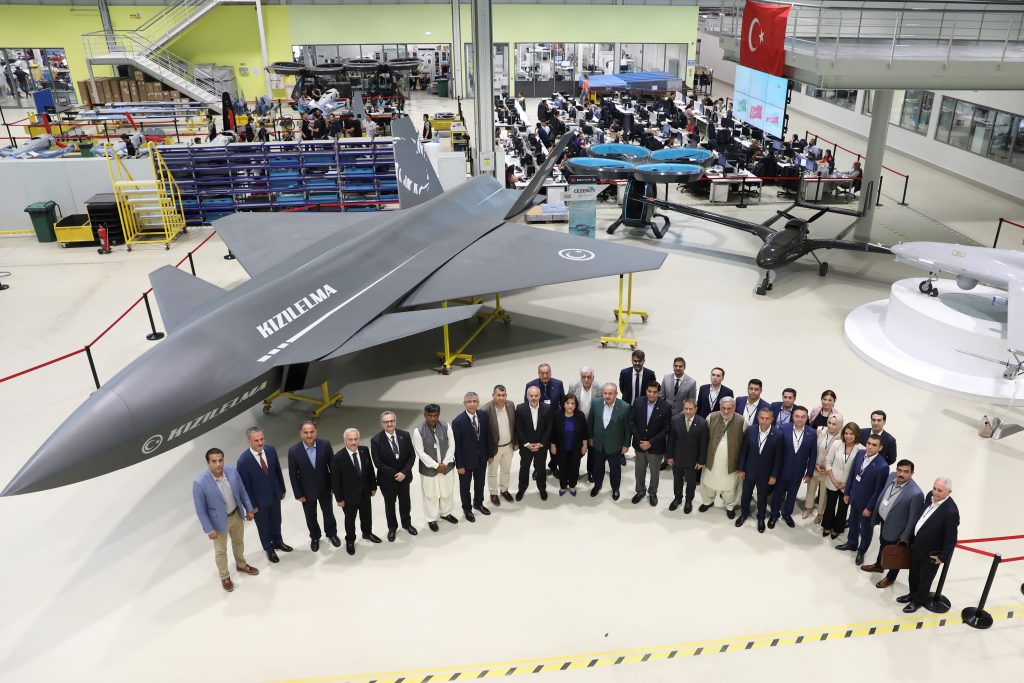
– Last question. Why did you decide to support Ukraine? Why Ukraine?
— We have been working together with our Ukrainian friends for more than five years. We have built a lot in general to bring our countries closer. I personally believe that relations between Turkey and Ukraine are complementary and mutually beneficial. We are neighbors, between us is the Black Sea. We are very close neighbors. There are no possible negatives, so I always believe that this strategic relationship will benefit both of us. And the years of effort we’ve put into creating these things have created many friendships. We met together with many different Ukrainian authorities. Overall, we have made many plans for our vision for the future.
WE ALREADY COOPERATE IN MANY AREAS, SO IT IS OUR DUTY, IN FACT, TO DO EVERYTHING POSSIBLE FOR UKRAINE, TO SUPPORT AND PROTECT IT.
And apart from everything, apart from these things, Ukraine faces this aggression, and this aggression is absolutely groundless, senseless. No one knows why, what the goal is. Therefore, we feel a humanitarian responsibility to suffering people, to civilians. All these things together give us a responsibility to support you and do our best for you.
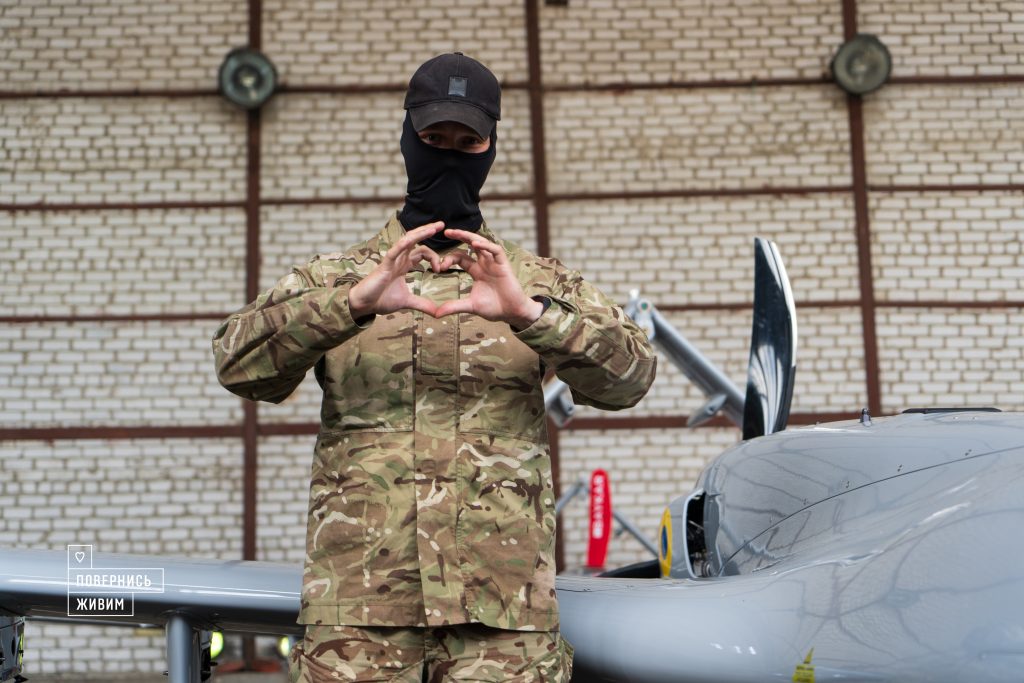
– Thank you! Thank you for the conversation and thank you for the support you and your country are giving Ukraine in this war.
— Thank you once again, Taras! I would also like to thank you for the efforts you and your entire team are making for your country. This is very valuable and I would like to tell you that all our prayers and support are with Ukraine. We want this war to end and Ukraine to continue progress under its own sovereignty and move forward in a peaceful way. Thank you.
Source: https://savelife.in.ua/materials/news/nashe-bazhannya-shchob-odnoho-dnya-na-z/
Translated by Google Translate






